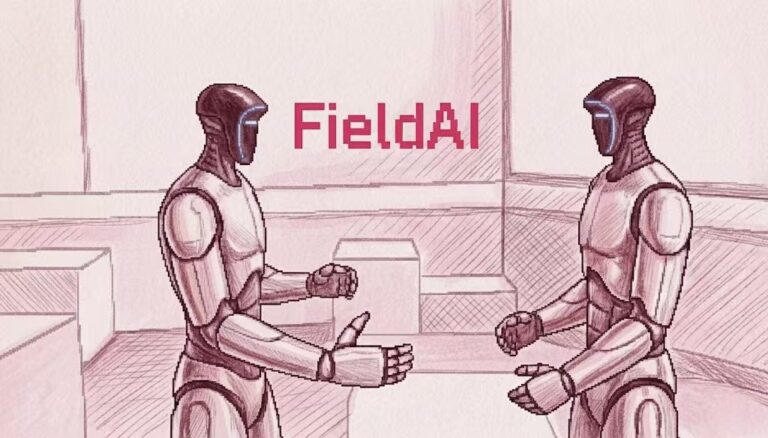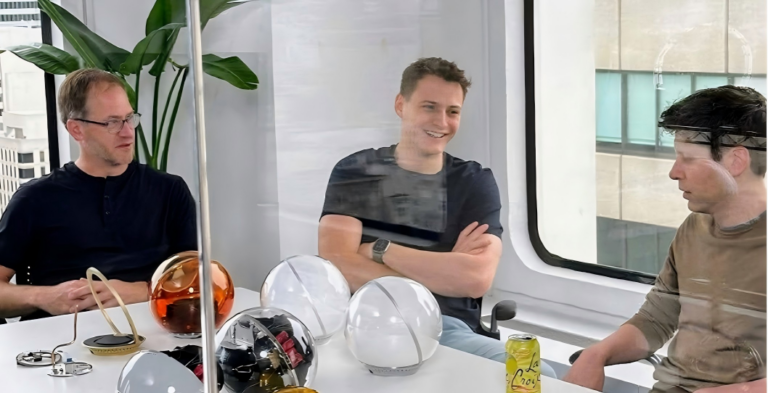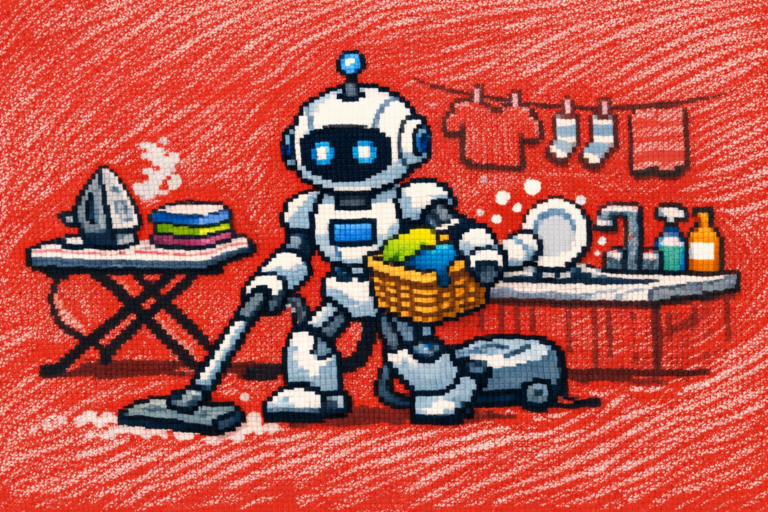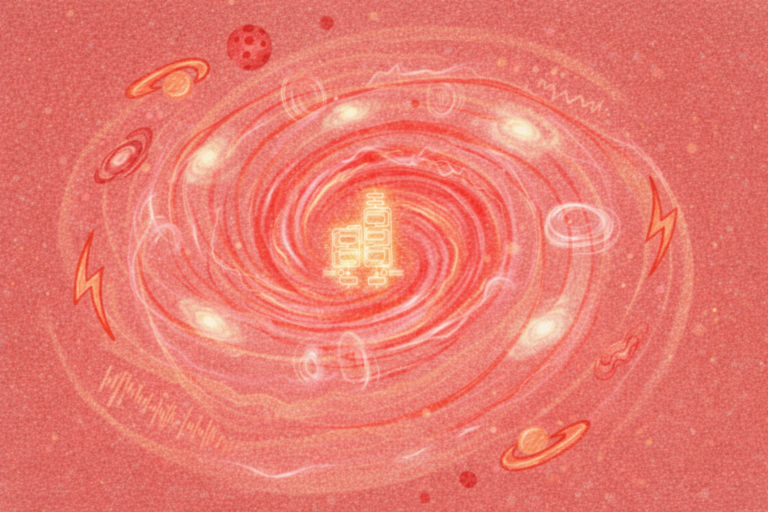Command Palette
Search for a command to run...
Determined to Build a Turing Machine for Chemistry! AI Pharmaceutical Company Chemify Develops the world's First Chemical Compiler and Enters the US Market
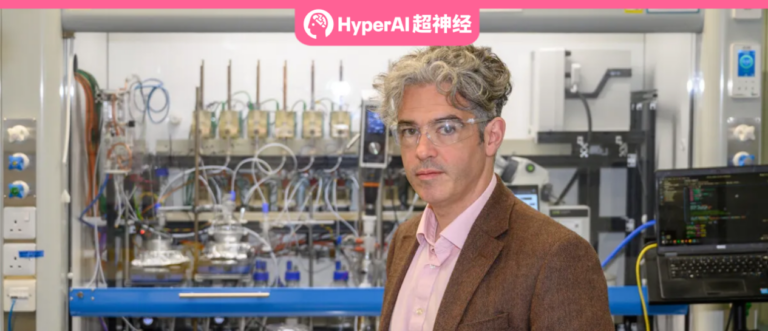
In scientific research, we often need to read a lot of literature and try to reproduce the research results of our predecessors, but in most cases, "retracing the path of our predecessors" is not easy.
In 2012, researchers at Amgen, one of the world's largest biotech companies, verified 53 "milestone" papers in related fields, hoping to use these studies as a basis for drug development. The results were shocking: only 6 of them passed the verification, which sparked widespread controversy among the public. These important results that failed to pass the verification were not only widely cited, but also derived a large number of "secondary literature". The above situation actually happened in the medical field that directly affects human life and health, which is terrifying.
The repeatability and verifiability of research results are basic requirements of scientific research.However, subtle factors such as differences in experimental equipment, quality of reagents, changes in experimental conditions, and reading errors may affect the final experimental results. Reproducibility has always been a major challenge facing the scientific research field.
Leroy Cronin, founder of Chemify and professor of chemistry at the University of Glasgow, believes that if we can have a set of standard methods to manufacture drug molecules, we can generate a large number of feasible results based on this. His suggestion is to promote the digitalization of chemistry.That is to integrate chemical computing, artificial intelligence, robotics, automation, etc. into chemical research, and synthesize molecules with standardized hardware or standardized methods.
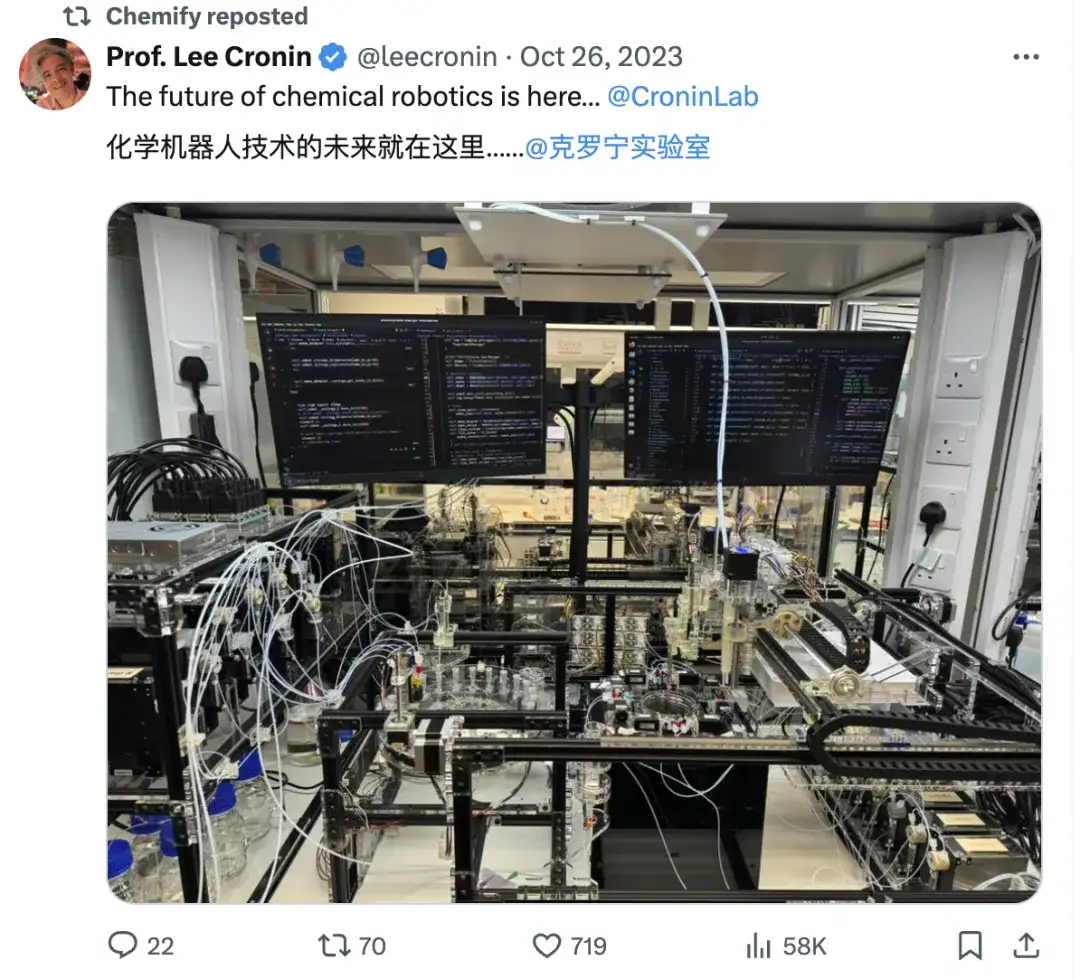
Simply put, it is to use AI to explore the vast chemical space, access and create trillions of possible combinations of natural elements. Convert the chemical information of candidate molecules into codes that robots can understand, allowing robots to perform operations such as reagent delivery, post-reaction processing, product separation, and purification. Once a discovery is made, the coordinates of the new molecule can be stored as a code that can be used repeatedly to ensure the consistency and repeatability of the robot's operation process. As shown in the figure below,During the entire process, all humans need to do is “start with one click”.
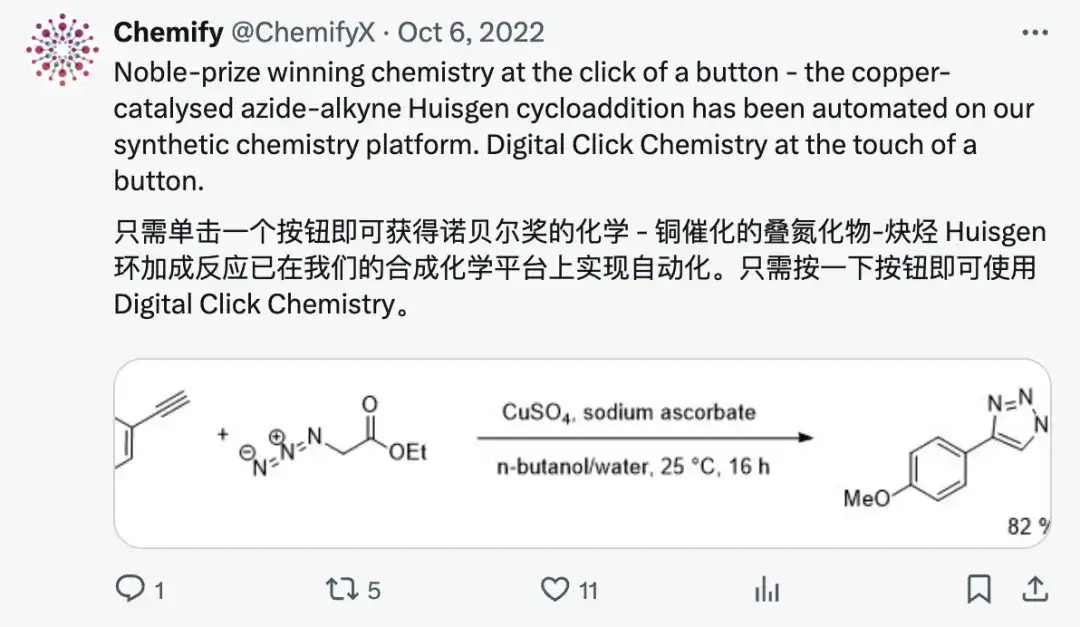
All of the above has been realized at Chemify. Founded in 2022, Chemify was spun out of the University of Glasgow. As a British high-tech chemical company,It has developed the world's first "chemical Turing machine", the world's first chemical compiler, etc., and is committed to realizing the digitalization of chemistry on a global scale by integrating the latest high technology into molecular research and development.
Thanks to its breakthrough research, the company has been selected as the most noteworthy drug development startup for three consecutive times in less than two years since its establishment. The U.S. Defense Advanced Research Projects Agency and BlueYard Capital have expressed their support. In addition, Chemify has also received $43 million in financing led by Triatomic Capital. In October this year, the Bill & Melinda Gates Foundation also made additional investments.
Chemify official website:
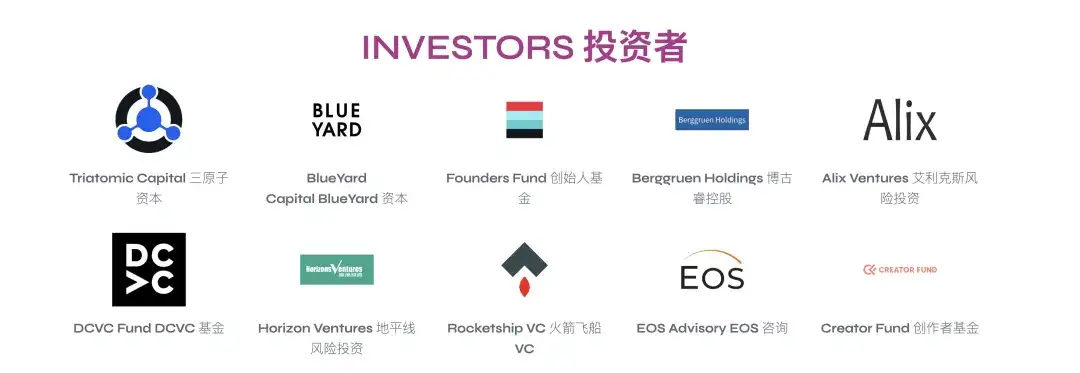
“There are a lot of people working on AI drug discovery, and there are a lot of people working on chemistry, but Chemify has the first chemical computer that can convert molecules into code and code into molecules, and can make molecules at the click of a button,” Cronin said.
Want to build chemistry's own Turing machine
Integrating cutting-edge technology into chemical research has been Cronin's dream since childhood: "When I was 8 years old, I wanted to dismantle certain parts of the washing machine and TV and reassemble them into a new computer. In order to stop me from tearing up the house, my father bought me a set of chemical experiment equipment, so I started trying to combine the experimental equipment with the collected electronic parts."
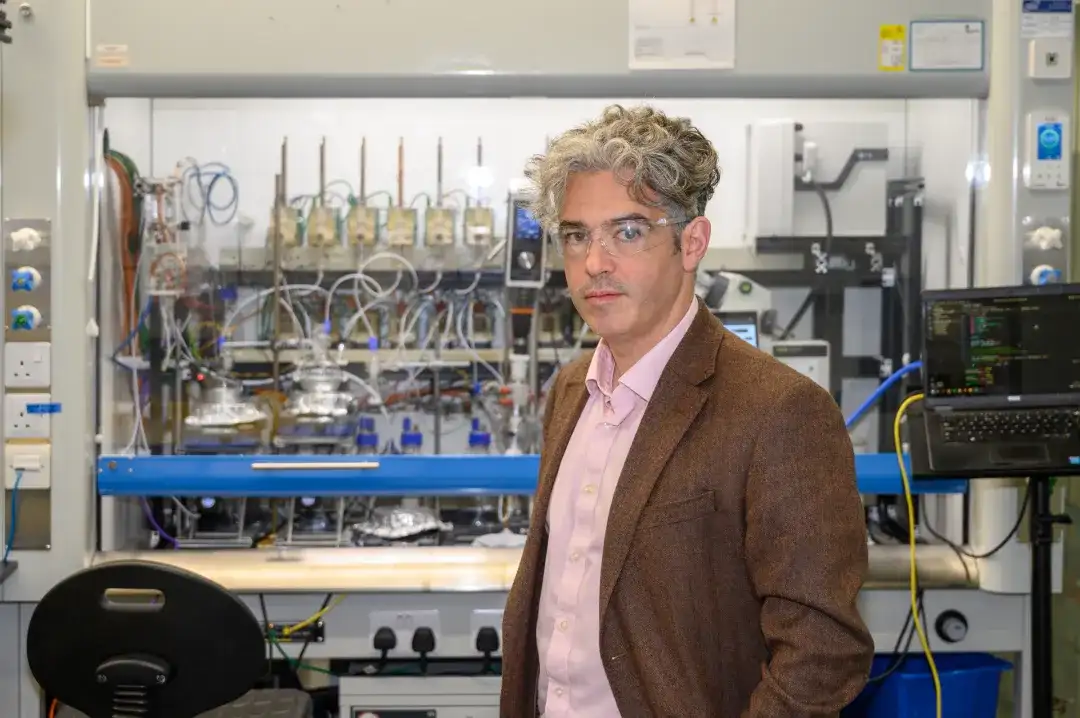
After obtaining a Ph.D. in chemistry from York University, Cronin continued to work in the field of chemistry. He found that the chemical space is even "larger than outer space", but most chemists spend 90% of their time doing known basic work. For example, synthesizing known molecules manually is not only time-consuming and laborious, but also poses safety risks (such as toxicity or explosion). If we can find a way to automatically synthesize target molecules according to our needs, chemists can be freed from daily chores and do more creative research.
Building a family of modular robots that can both understand and perform chemical manipulations may be able to achieve this goal.However, more than a decade ago, it was impossible to build a universal chemical robot that could make any molecule, because chemical reactions are extremely complex and unpredictable, and the instructions used to make molecules are often vague or incomplete, and it is impossible to reproduce them multiple times.
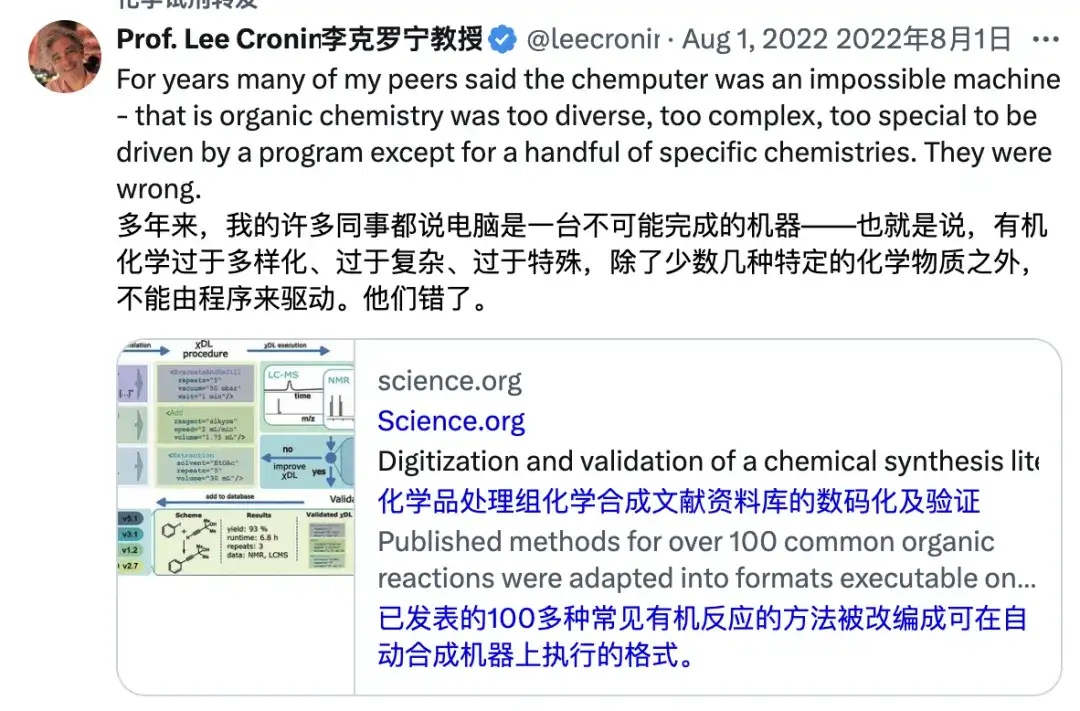
Cronin believes these problems are solvable. “Others have shown that a universal Turing machine can theoretically perform all conceivable computations.So why don't we build a universal chemical Turing machine to perform chemical computations (Chemputation), thereby obtaining chemical codes and some input reagents, and instructing robots to make real molecules."
Turing, the father of computer science and artificial intelligence, proposed the concept of a universal Turing machine in 1936. This idealized machine is equipped with an infinite memory (an infinite paper tape) and a scanner that moves back and forth along the paper tape, reads the content printed on the tape, and further prints out more content. Before the calculation begins, the machine's program and the data required for the calculation are printed on the paper tape. By selecting different programs stored on the paper tape, the operator can let the machine perform a variety of tasks, such as mathematical calculations, word processing, and chess.
In Cronin's view, the chemistry community could also have a Turing machine of its own.He believes that this chemical Turing machine can directly drive robots to manufacture real molecules through standardized instructions, greatly lowering the threshold of chemical experiments and making the synthesis of complex molecules more efficient and popular.
Developing the world's first chemical compiler to enable automated drug discovery
Inspired by the universal Turing machine, Cronin formed a 65-person research team while at the University of Glasgow. The team had an annual budget of nearly $5 million, and about half of the resources were invested in the development of the "chemical Turing machine."
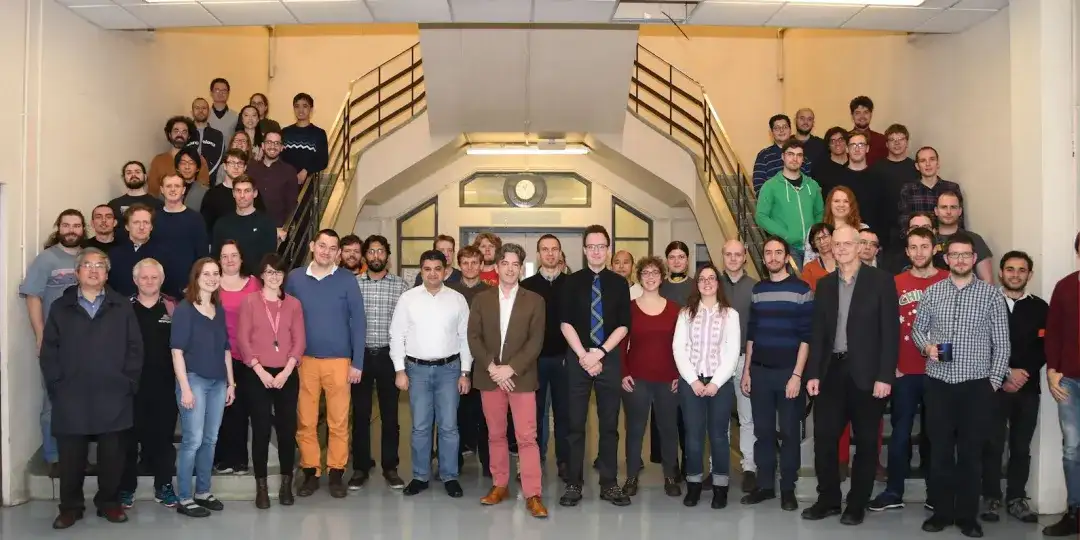
In his vision, the system should consist of the following parts: bottles of reagents, round-bottom flasks, filtration and liquid-liquid separation components, physical equipment such as rotary evaporators, tubes, valves and pumps for moving chemicals, and related software programs.
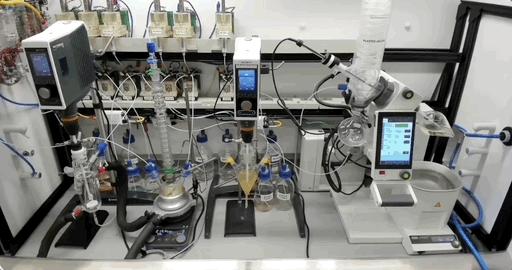
"Around 2013, I happened to attend an academic conference on inorganic materials architecture and found that someone had used a 3D printer to print ping-pong balls. I thought they were geniuses because they inspired me to use 3D printers to print test tubes, flasks, etc. In the following days, I also invited some engineering designers to design related equipment such as pumps and valves," Cronin said in an interview.
In terms of software, the Cronin team developed the world's first chemical compiler, Chempiler, using XDL as the specific programming language.Like our commonly used compilers, Chempiler can also convert the original language into another language that the machine can understand, that is, convert the chemical language into code instructions.
XDL Chemical Programming Language:

Specifically, Chempiler can automatically compile experimental procedures, equipment, materials, etc. from chemical laboratories, as well as relevant chemical information from research papers and mark the ambiguous parts of the papers. After resolving all ambiguities,Chempiler converts this chemical information into code, directing the robot to perform precise operations.In this process, AI technology is interspersed to help screen the best target molecules, optimize yields, and improve efficiency, forming a fully automated design-manufacturing-testing-analysis cycle.
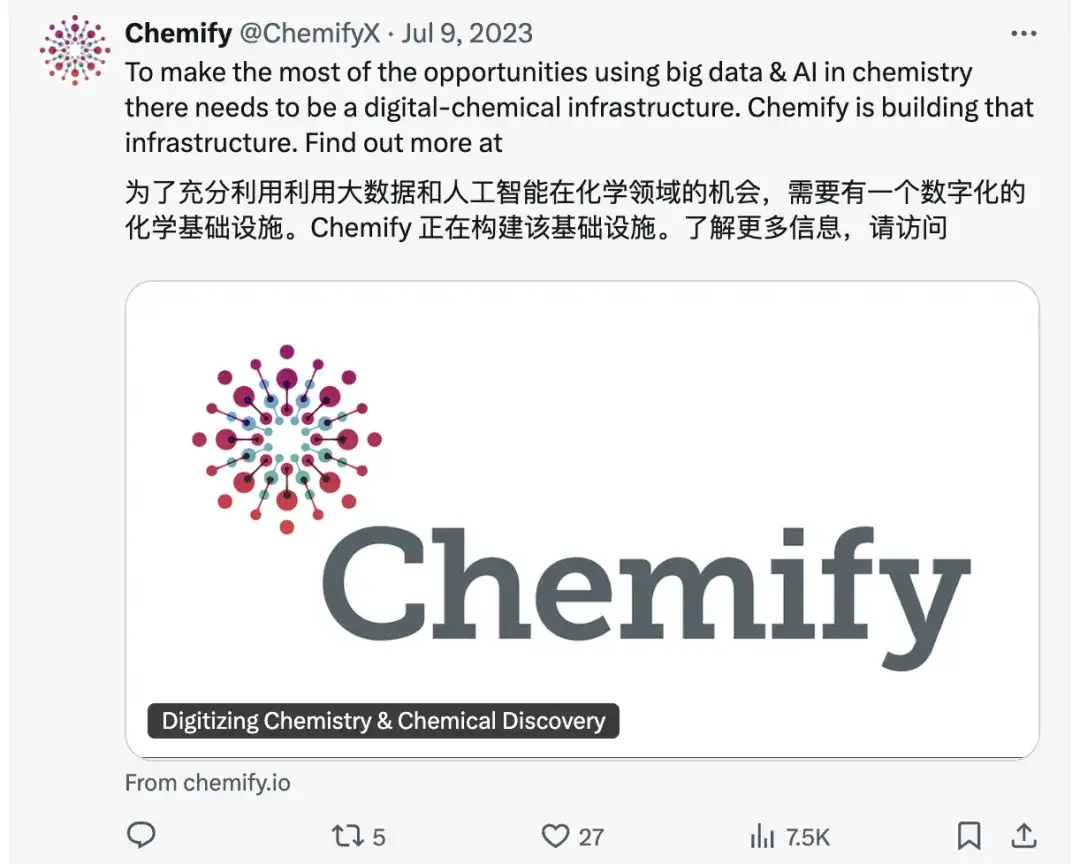
Chemify's automation platform is probably the easiest to use and access. It is built on traditional tools such as beakers and test tubes that chemists have used for centuries, following a batch model to conduct experiments step by step. Cronin hopes that this system will be widely compatible, that is, it can be used with any chemical robot.
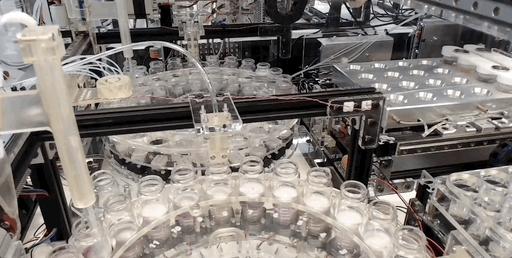
It is worth mentioning that in traditional chemical laboratories, many experimental results are often difficult to repeat, but in Chemify's laboratory, the situation is very different. The chemical computer here can accurately perform each step of the operation, and this standardized process makes the entire experimental process extremely reliable.
Although Cronin pointed out that almost any lab could build such an automated system for less than $10,000, many chemists were still skeptical.Cronin's team successfully used this platform to synthesize several important drugs, including diphenhydramine hydrochloride, rufinamide, and sildenafil.
Original paper:
https://www.science.org/doi/10.1126/science.aav2211
Chemify is about to enter the US market
Currently, the team has 25 different robotic systems that can operate in the fields of organic drug synthesis, energy material discovery, nanomaterial discovery, formulation discovery, etc., which has attracted the interest and cooperation of many companies.
In October this year, the Bill & Melinda Gates Foundation partnered with it to develop new drugs for the treatment of tuberculosis and malaria.
In this regard, Cronin said: "Tuberculosis and malaria affect millions of lives every year. With financial support from the Bill & Melinda Gates Foundation, we can use digital chemistry technology to accelerate the discovery of new small molecule therapies."
Other companies have also seen the potential of Chemify’s customized personalized medicines.Chemify is also working with Prepaire™ Labs to develop non-addictive opioid painkillers, treatments for opioid addiction,In response to the call of the US FDA, it fills the gap in drug addiction treatment.
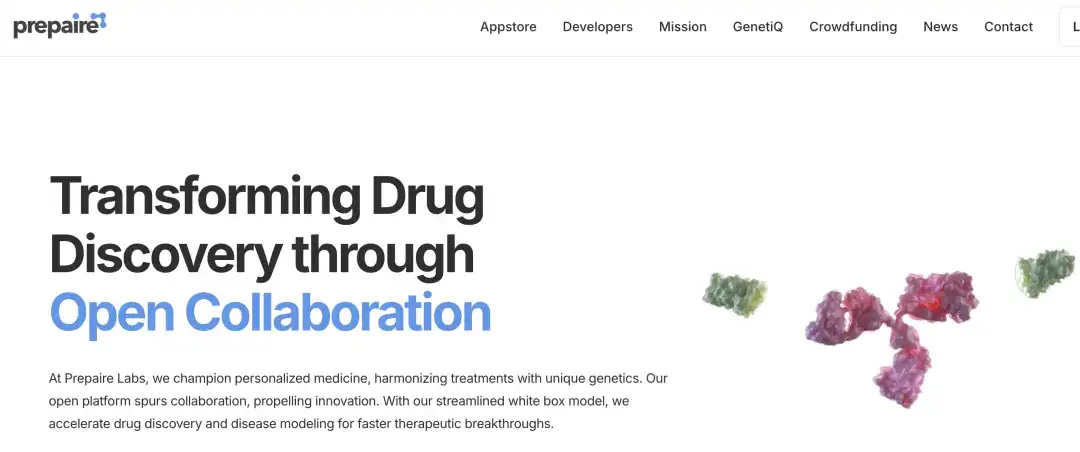
Prepaire is a medical technology company focused on drug discovery. It integrates deep learning and biology and is committed to developing predictive models based on genetics and clinical data. The two parties plan to combine Chemify's chemical computational technology and Prepaire's drug development platform to jointly promote the development of safer and non-addictive painkillers. Dr. Vicent Ribas, co-founder of Prepaire, said: "Cooperation with Chemify will allow us to integrate our platform with its chemical space exploration methods to obtain new chemicals. I hope to expand this method to more drug development besides painkillers in the future."
Prepaire official website:
In addition, in 2023,Chemify has also worked with Dewpoint Therapeutics to develop drugs related to oncology and neurodegenerative diseases.The two parties use Chemify's AI technology and automation platform to design, discover, and synthesize complex molecules on demand through "chemical programming language." Dewpoint CEO Ameet Nathwani is full of expectations: "Chemify provides us with a new path to advance the chemicals we are optimizing."
In order to further expand the international market, Chemify is also continuing to make efforts. This year, the company invited Dr. Kevin McGowan to join the team as Chief Business Officer. This senior industry expert holds a Ph.D. in Chemistry from the University of Florida, an MBA from Duke University, and a Bachelor of Science in Chemistry from Duke University. He has served as Vice President of Biopharmaceutical Growth and Senior Vice President of Commercial Affairs in many companies such as Blink Health and Evozyne. Cronin believes thatKevin's joining will accelerate the company's layout in the US market and promote the company's further development.
The deep integration of AI and medical care will be the general trend
One of Cronin's doctoral students once excitedly shared: "We can run thousands of experiments every day because the machine is always performing all the steps." All this is thanks to Chemify's core technology, a platform that perfectly combines chemistry with cutting-edge technology (computers, AI, robots, etc.).
In fact, as early as the 1990s, pharmaceutical companies tried to design systems that could perform multiple experiments in parallel, but due to the limitations of algorithms and data quality at the time, they often resulted in "garbage in, garbage out".With the rapid development of artificial intelligence, combined with Chemify's unique automated robotic equipment, the way drugs and materials are discovered is being completely changed.
Demis Hassabis, co-founder and CEO of Google DeepMind, once excitedly pointed out: "The first thing artificial intelligence will do for mankind is to cure hundreds of diseases."
AI has the natural advantage of being "faster and more accurate" than the human brain, and can efficiently complete complex and arduous tasks, showing great application potential in the field of drug research and development. In May this year, Boston Consulting Group analyzed the clinical pipelines of more than 100 AI pharmaceutical companies and found that the success rate of drug molecules discovered by AI doubled, and in Phase I clinical trials, it was as high as 80%-90%. It can be foreseen that AI is gradually breaking the bottleneck of drug research and development.
Public data shows that as of the end of 2023, more than 800 companies worldwide have been involved in the field of AI pharmaceuticals, including Fortune 500 giants such as AstraZeneca and Johnson & Johnson. Whether it is strategic cooperation or equity investment, AI has become the core engine of industrial development.In the future, the deep integration of AI and medical care will be the general trend.It will surely drive the intelligent upgrade of the entire medical industry. The significance of this change lies not only in technological advancement, but also in the beautiful vision of improving human health.
References:
https://wallstreetcn.com/articles/3714784
https://stcn.com/article/detail/1248297.html
https://bigthink.com/the-well/life-chemistry-aliens/
https://www.youtube.com/watch?v=ZecQ64l-gKM
https://news.qq.com/rain/a/20221215A01QZA00
https://www.chem.gla.ac.uk/cronin/news/digitalization-of-chemistry/
https://cx.wanfangdata.com.cn/cnris/zk_huangxiaoru/20211104/640939288627773440.html
https://www.discovermagazine.com/te
